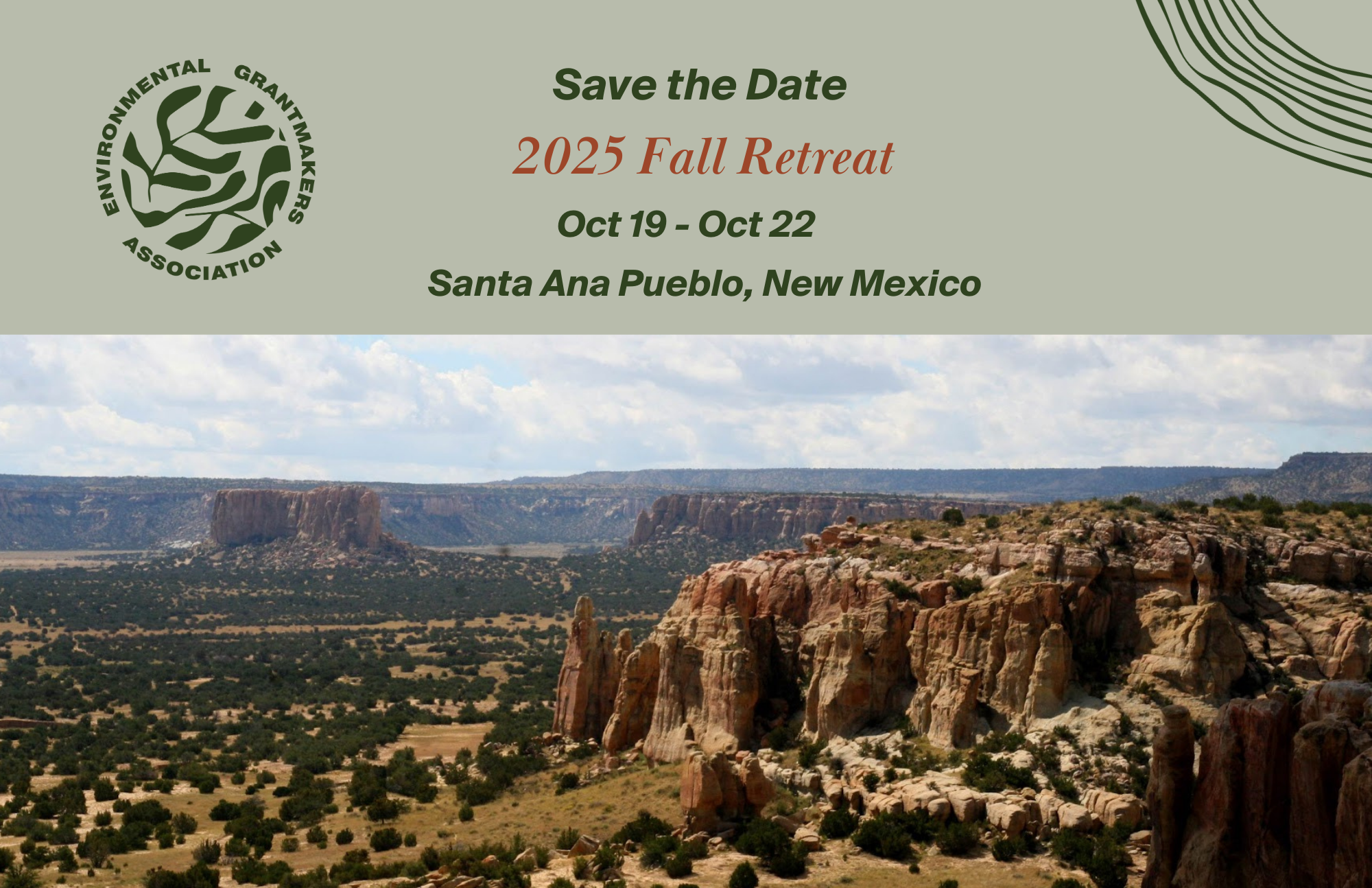Elevating Our Thinking for Sustained Democracy on a Sustainable Planet
Dear EGAers,
I hope this email finds you in health, strength or rest and recovery as our work persists in the context of the compounding crises.
The focus of our body politic is shifting, and we all need time to digest the changes. For my part, I have been reflecting on the lessons from the 2024 Fall Retreat. Last month, we shared resources from the Retreat with essential follow-up information and contacts. Below you will find even more from our time at Skamania in Washington!
If you were unable to join us, take a moment to look into the recap, complied for your use it as a reference in your planning for 2025. For those who joined us, we look forward to hearing your feedback, via our event survey.
In every scenario, our work continues. We are planning for the 2025 Federal Policy Briefing, on February 23-25, 2025, in Washington DC. The Federal Briefing will be our next in-person convening where we will assess our sectoral strategy for just philanthropy in the context of a changing democracy. In the months ahead, you can expect to hear from us as we offer more opportunities for connection, and peer support resources to inform your efforts.
As we are faced with change, EGA is here to support your continued commitment to people and planet, whether you are focused for communities stewarding sacred places, and navigating irreversible changes to climate, EGA is your steadfast partner in the practice of environmental philanthropy. Don’t hesitate to reach out to us with your needs, inquiries or insights.
I hope that recap of our annual signature event is nourishing, inspiring and affirming!
Tamara
Tamara Toles O'Laughlin
CEO and President
Environmental Grantmakers Association
2024 Fall Retreat: The Executive Grantmaker Fellowship Launch
The Fall Retreat in Skamania marked an exciting start for our inaugural, 18-month Executive Grantmakers Fellowship. For their first session, the new cohort focused on unpacking the current challenges and complexities of leadership with the value of racial equity within the sector. Participants brought their creativity and wisdom into two days of conversation together, setting the stage for the next sixteen months of vibrant and meaningful work. The launch session used analysis, group work, and collaborative conversations to identify and analyze current systemic barriers within environmental and philanthropic sectors and reflect upon the historical context of racial injustices and their impact on present-day challenges. The cohort began to articulate their personal perspectives and commitments to advancing racial equity in their own leadership roles.
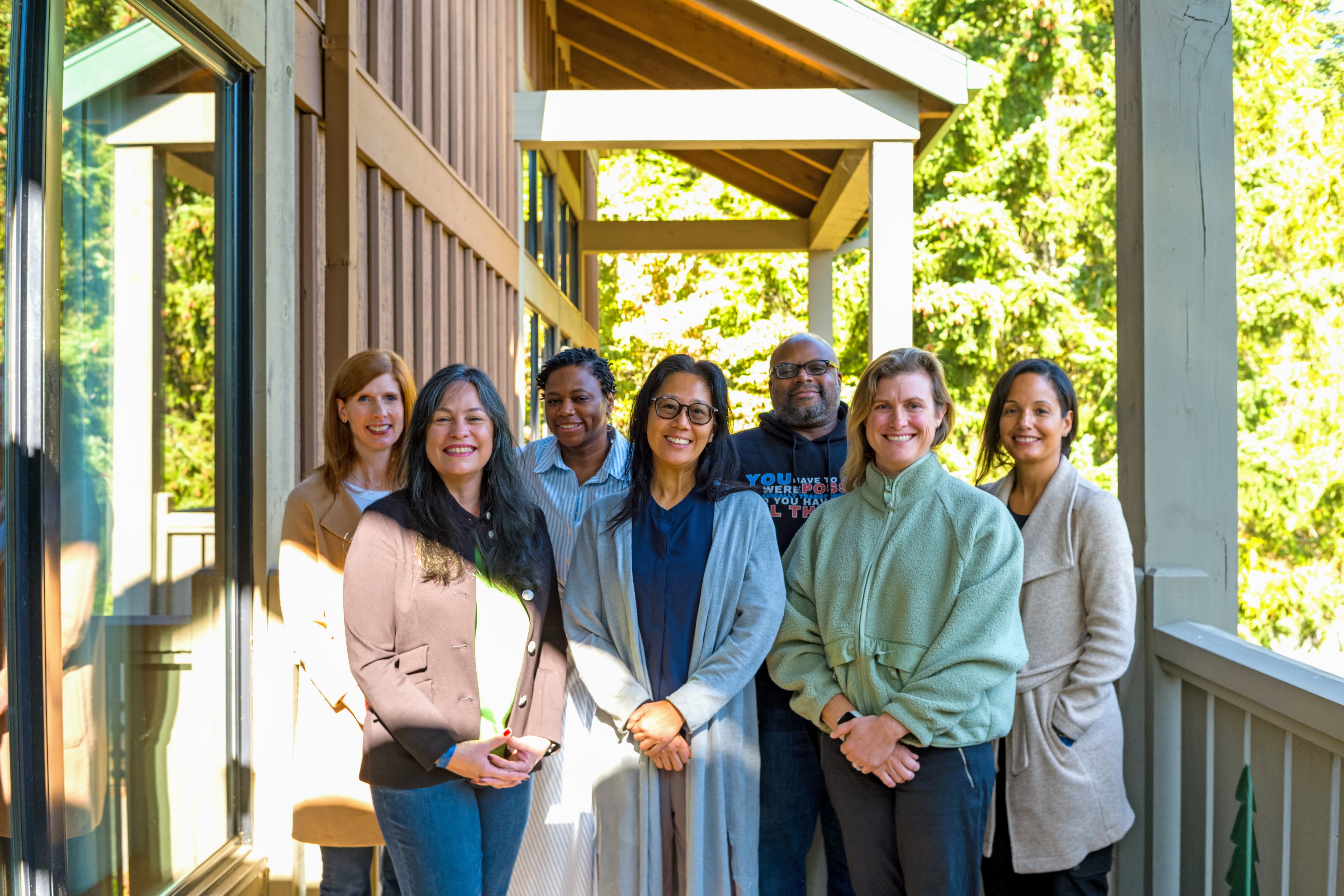
The Executive Grantmaker Fellowship is a new EGA program that responds to the clear need for direct pathways for obtaining and sustaining experienced leaders in the shifting landscape of environmental philanthropy. The program is designed to support foundation presidents and trustees to:
- Deepen and foster connection, collaboration, and innovation.
- Enhance capacity for impactful philanthropy, rooted in real-time data and enduring practices of equity.
- Strengthen leadership skills and road-test strategies for navigating organizational challenges; Increase resilience and well-being for leaders, ensuring sustained commitment to their mission over the long term.
The Columbia Basin Restoration Initiative: Inter-Tribal Leadership for Climate Justice
Opening Discussion
Indigenous Climate Leadership in the Pacific Northwest
EGA convened on the lands of the Confederated Tribes of Cayuse, Umatilla and Walla Walla, Stl’pulmsh (Cowlitz), Confederated Tribes of Grand Ronde and Confederated Tribes of Siletz Indians in Stevenson, Washington for our 2024 Fall Retreat.
Our opening speaker, Aja DeCoteau, is a citizen of the Confederated Tribes and Bands of the Yakama Nation, with tribal lineage to the Cayuse, Nez Perce and Turtle Mountain Band of Chippewa Indians. Aja is the first woman Executive Director of the Columbia River Inter-Tribal Fish Commission (CRITFC).
CRITFC coordinates policy and provides technical services for the Yakama, Warm Springs, Umatilla, and Nez Perce tribes. The Commission serves as a unified voice for the Tribes to manage fisheries, protect treaty rights, and uplift Tribal sovereignty.
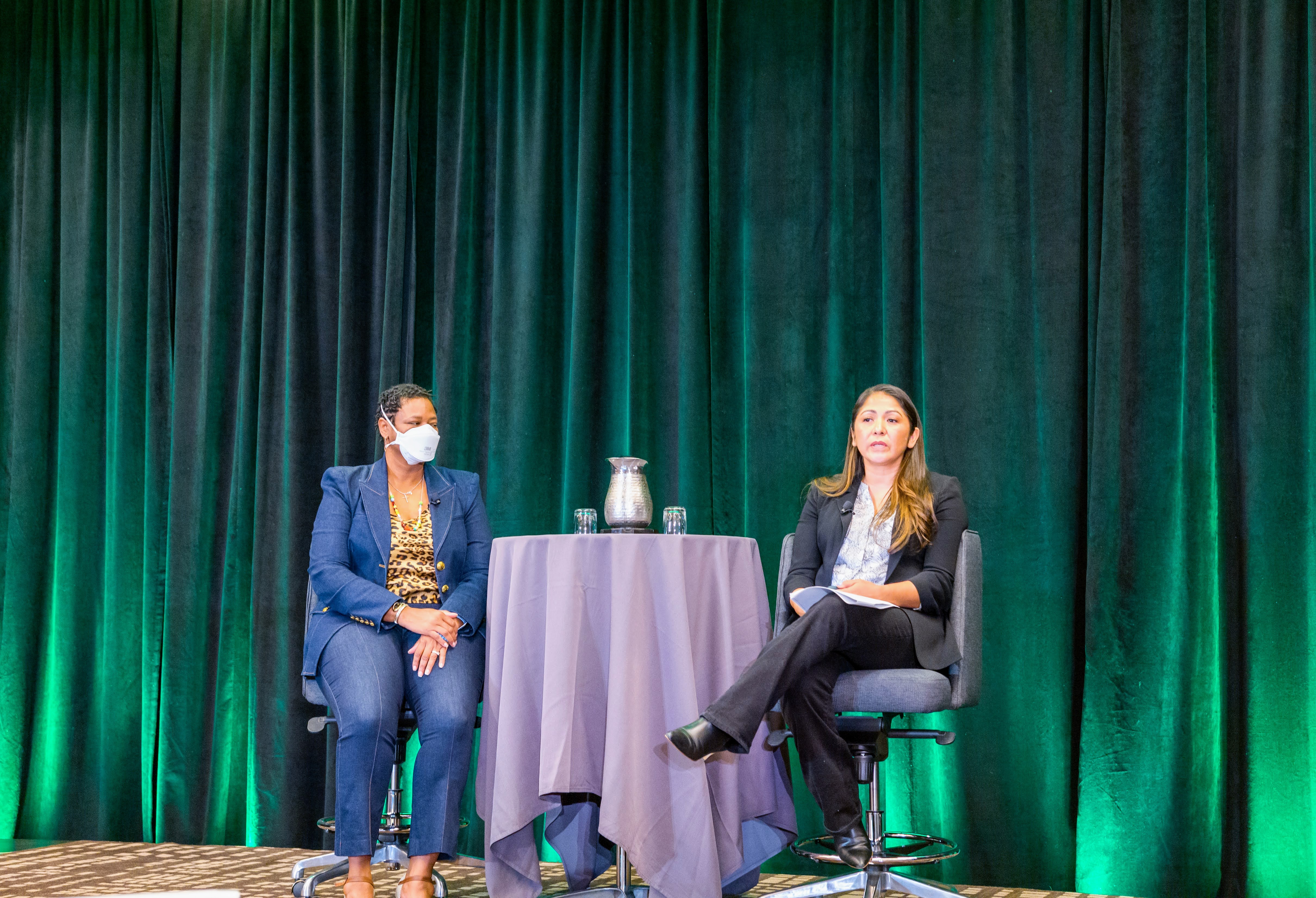
[Left to right]: EGA President, Tamara Toles O'Laughlin and Aja DeCoteau of CRITFC. Photo by AT Media and Analysis.
DeCoteau moderated the Retreat’s opening panel with Tribal Leaders and representatives Corinne ‘Cor’ Sams (Cayuse/Walla Walla/Cocopah), an elected Board of Trustees Member for the Confederated Tribes of the Umatilla Indian Reservation (CTUIR), Jonathan Smith, Chairman of the Confederated Tribes of the Warm Springs Reservation of Oregon and Tom Iverson, Regional Coordinator of the Yakama Nation Fisheries.
Panelists shared priorities from the Columbia Basin Restoration Initiative (CBRI) and its vital importance to the Tribes and the region. The CBRI enables a just and healthy future to be built through thriving salmon and ecosystems that support the economy, culture, and livelihoods.
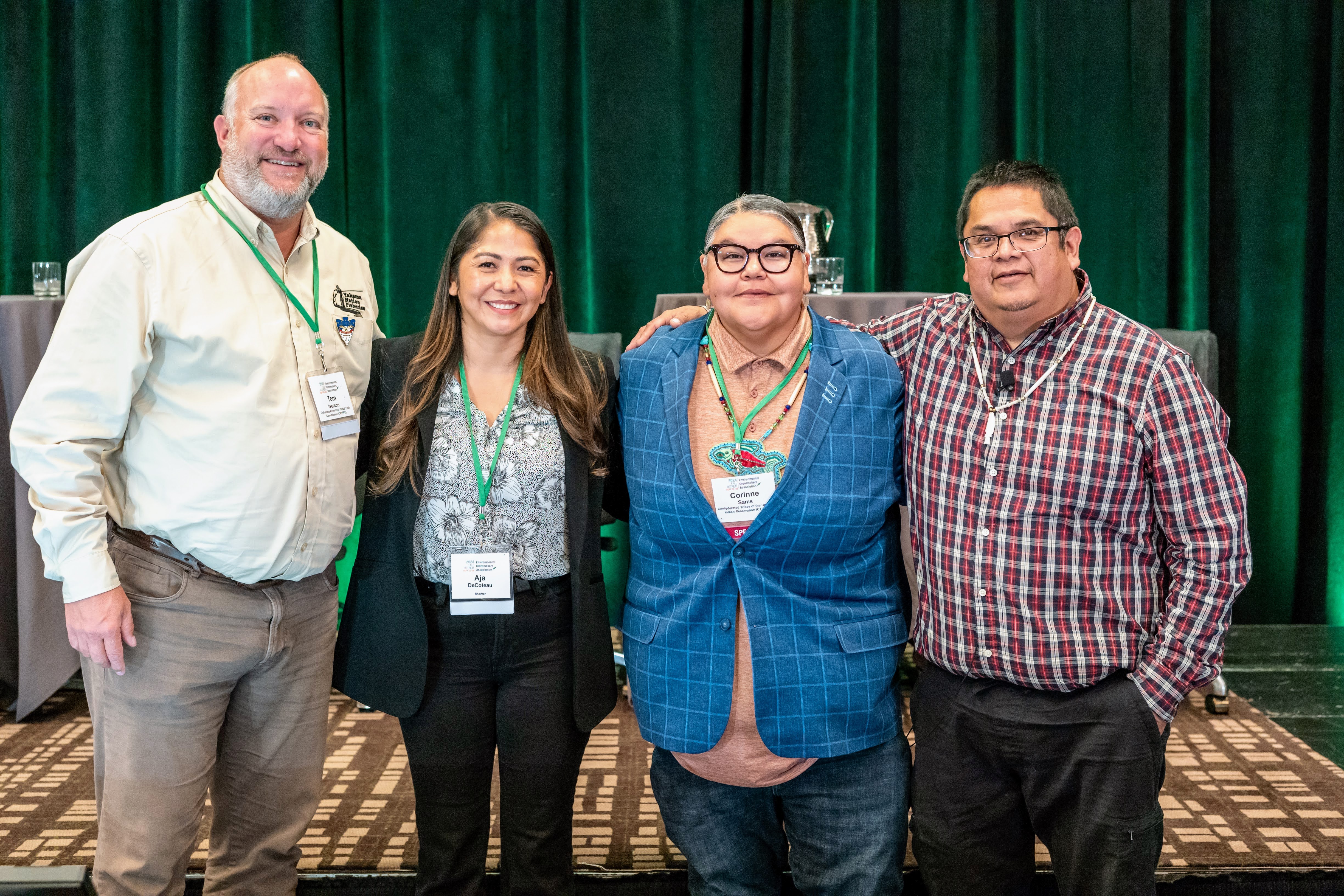
[Left to Right]: Tom Iverson, Aja DeCoteau, Corinne Sams, and Jonathan Smith. Photo by AT Media and Analysis
Key Takeaways
- CRITFC operates on four main pillars of work that brings Tribal views to the forefront of the Columbia River Basin.
- The CBRI acts as a roadmap for the Six Sovereigns and the federal government in working towards restoring salmon and other fisheries to healthy and abundant levels, upholding commitments to Tribal Nations, and providing affordable and reliable clean power across the Pacific Northwest.
- There are six main objectives within CBRI which are:
- Restoring salmon and steelhead species to healthy and abundant levels
- Ensuring ecosystem health
- Halting the decline of fish populations
- Quick and just energy transition
- Quick and thorough implementation
- Honoring treaty and trust obligations
More staff and infrastructure support is needed to carry out the CBRI, a Tribal-led vision for a just and healthy future in the region.
Further readings:
- Presidential Memorandum on Restoring Healthy and Abundant Native Fish Populations in the Columbia River Basin.
- Spirit of the Salmon - Restoration Plan.
- Tribal energy vision of the Pacific Northwest.
- Fish Consumption Survey of the Umatilla, Nez Perce, Yakama, and Warm Springs Tribes of the Columbia River Basin.
A Mindfulness Roadmap to Liberation
Rev. angel Kyodo williams, Founder of Transformative Change (XC), rejoined EGA for this year’s Retreat, and led our Mindfulness and Racial Equity POV session.
Rev. angel led our community in an embodied mindfulness practice with their Roadmap to Liberation. The roadmap is defined by each person and serves as a guide for envisioning ourselves in the life we want by being in right relationship and rooting in our truths.
The Roadmap to Liberation is a framework for mindfulness that is organized towards being able to more effectively move the needle.
“True mindfulness is organized towards being able to move the needle through ourselves which reflects in the vital work we do.”- Rev. angel Kyodo williams.
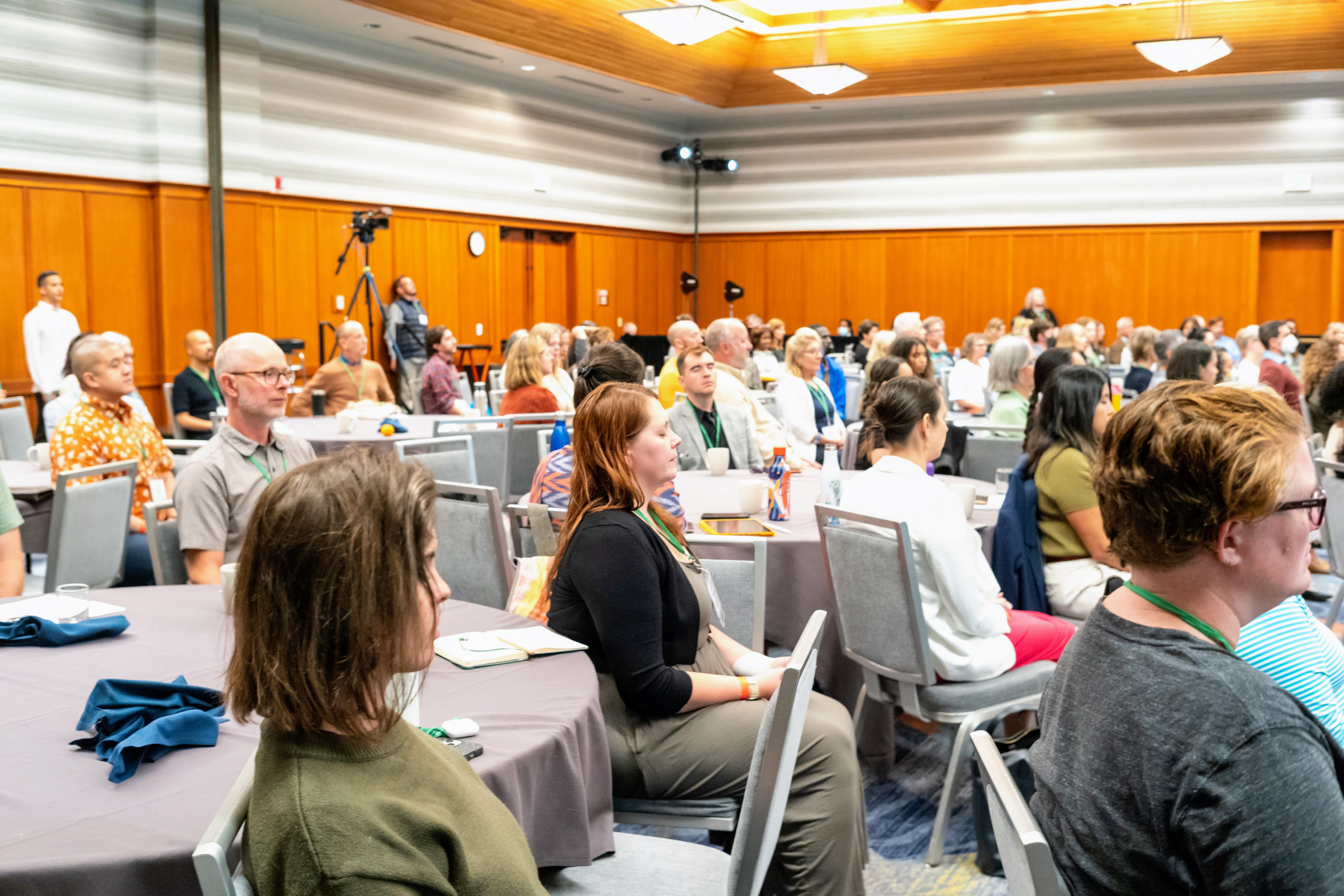
Fall Retreat attendees participating in a mindfulness exercise. Photo by AT Media and Analysis.
Key Takeaways
Rev. angel shared a Roadmap to Liberation framework to guide our mindfulness approach:
- Contemplative Approach: We slow things down enough to create the conditions for the intentions and purposes that we have.
- Embodied Practice: All things that allow us space and freshness are not exactly what’s going to move the needle. When we get quiet enough to steer and feel ourselves, we begin to tune in to our own truths.
- Prophetic Praxis: Praxis takes the theory of understanding the truth and putting it into practice. Prophetic Praxis means that you are committed to practicing the truth that your body tells you. It means gaining the courage to name the things that you are seeing.
- Liberatory Paths: We create the conditions. We get clear in our truth and tell the truth in a way that allows people who are most marginalized to be able to have thriving lives whether they are in the room or not, whether they tell their stories or not.
- Collective Process: It’s easy to marginalize the parts of ourselves that know better. To marginalize the voice within ourselves that knows better. We must let our own bodies and voices tell the truth and let all of those parts exist.
Racial Equity Enables a Healthy Democracy for a Healthy Planet
Michael Harriot, public historian and bestselling author of Black AF History: The Unwhitewashed Story of America, shared powerful insights into how racism and colonialism have contributed to climate injustice. As we strengthen our commitment to a healthy democracy, his remarks contextualized our discussions on how grantmakers must interrogate our assumptions about the history of our democracy to discover its direct relationship to long term racial equity work and address the present and future effects of our ability to address environmental degradation, stewardship and climate justice globally.
The exclusion of people that were instrumental to creating social structure not just movements. Everything about the protection and care for nature and the focus on regenerative practice is a part of environmental justice and advancement of democracy requires a healthy electorate to succeed. Movements for justice in every realm rely on physical labor, land and water, e,g, development of man-made lakes and reservoirs. In a little known fact, the American educational system, originated in a predominantly Black town in South Carolina, reflecting the earliest echoes of democracy, and sparked movements against the legal exclusion of Black women from the women’s suffrage movement to drive implementation of early democratic practice.
Importantly, the earliest descriptions of who is defined as "the people" falsely narrowed the category in ways that echo into today. It’s up to us to tell the truth for tomorrow.
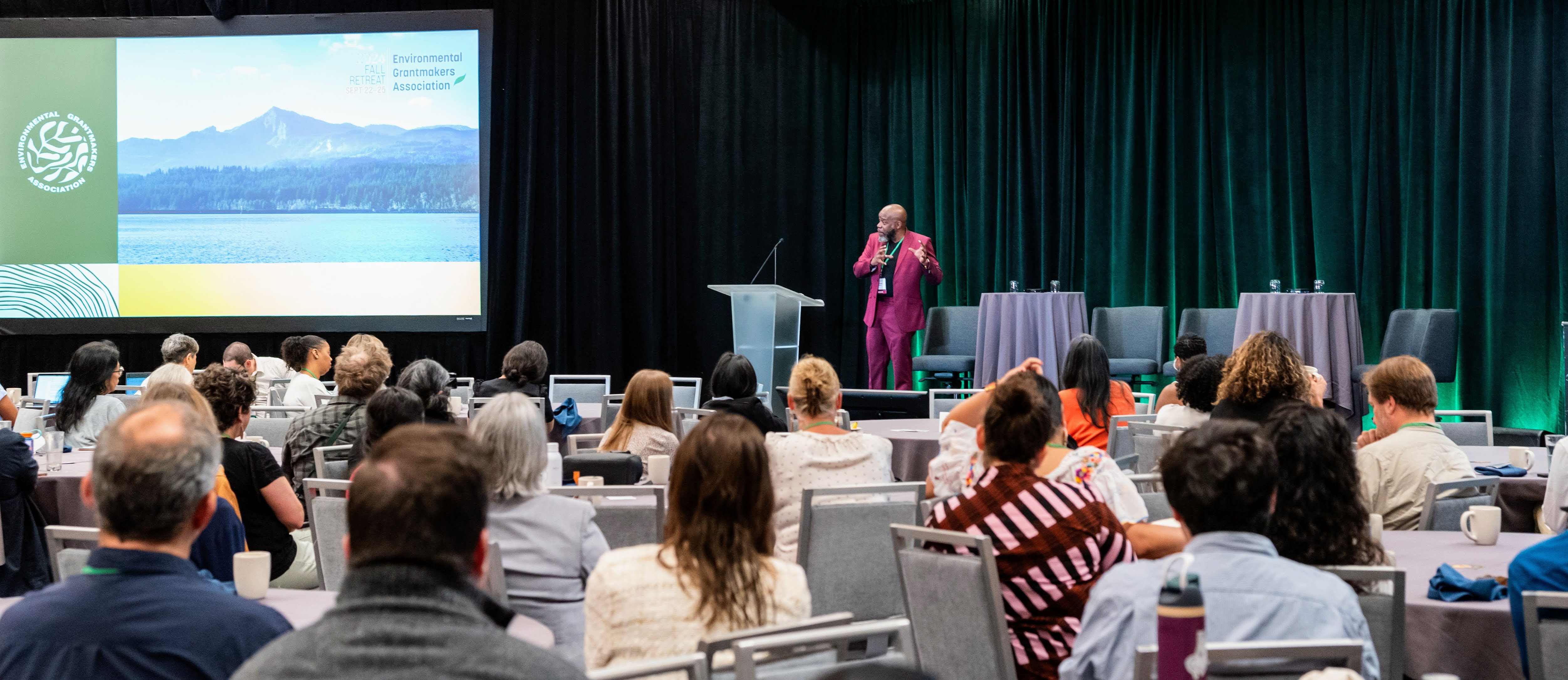
Award-winning journalist, bestselling author, celebrated poet and public historian Michael Harriot. Photo by AT Media and Analysis.
Key Takeaways
- All storytelling is subjective. The idea of objectivity is something that white people created because more people see things through that lens.
- The story of America is not unlike a police report. It is subject to the politics at least and the facts that support it. We should be careful what we call history without verification.
- Racial equity, requires that we address the discrepancies amongst populations, across geography to understand the context of group treatment to avoid missing the facts.
- The whitewashing of history is unnecessary. When you think about what America is today, the communities and institutions we built and things we’ve preserved, the democracy forged with Black people as drivers of enduring principles, in its truth, it’s the greatest story that ever existed and it can be told without whitewashing, or diminishing facts.
[Listen] Democracy was always the answer
At the Retreat, we deepened our knowledge of the region during interactive pre-institutes and site visits in the Columbia River Gorge and the surrounding areas:
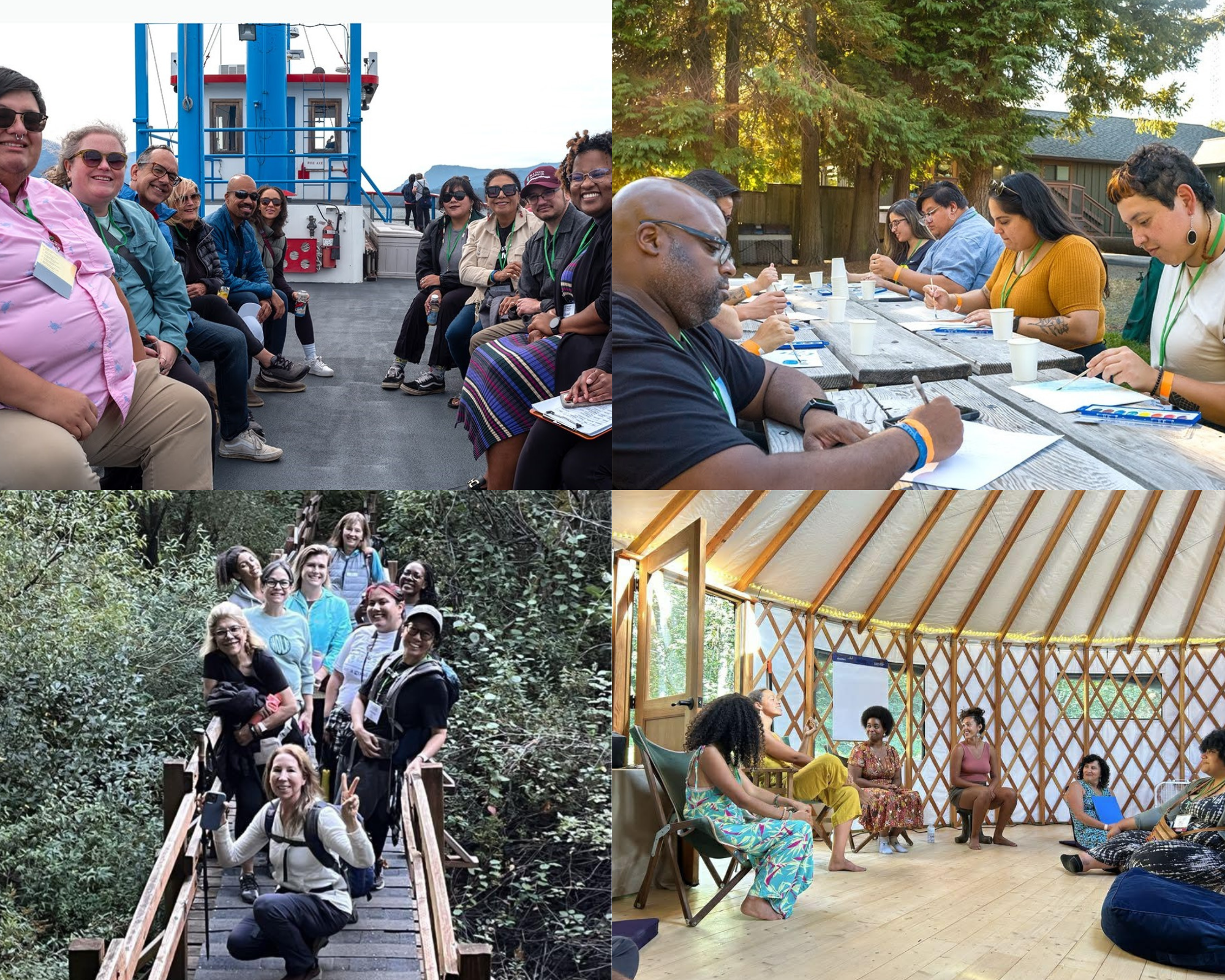
[From left to right, top to bottom] Members at the Columbia River Inter-Tribal Fish Commission’s steamboat tour, The Coalition of Communities of Color’s Advancing Climate and Racial Equity through Deep Communal and Collective Power, Hiking along the Columbia River Gorge, and Blue Sky Funders Forum’s Growing for Power, Shifting Resources site visit at Black Futures Farm. Photo by AT Media and Analysis.
EGA also hosted our first ever Screen on the Green series in partnership with valued EGA member and creative force, The Redford Center. Members watched eight short films highlighting Indigenous leaders, land defenders, and communities leading climate solutions during screenings across two nights.
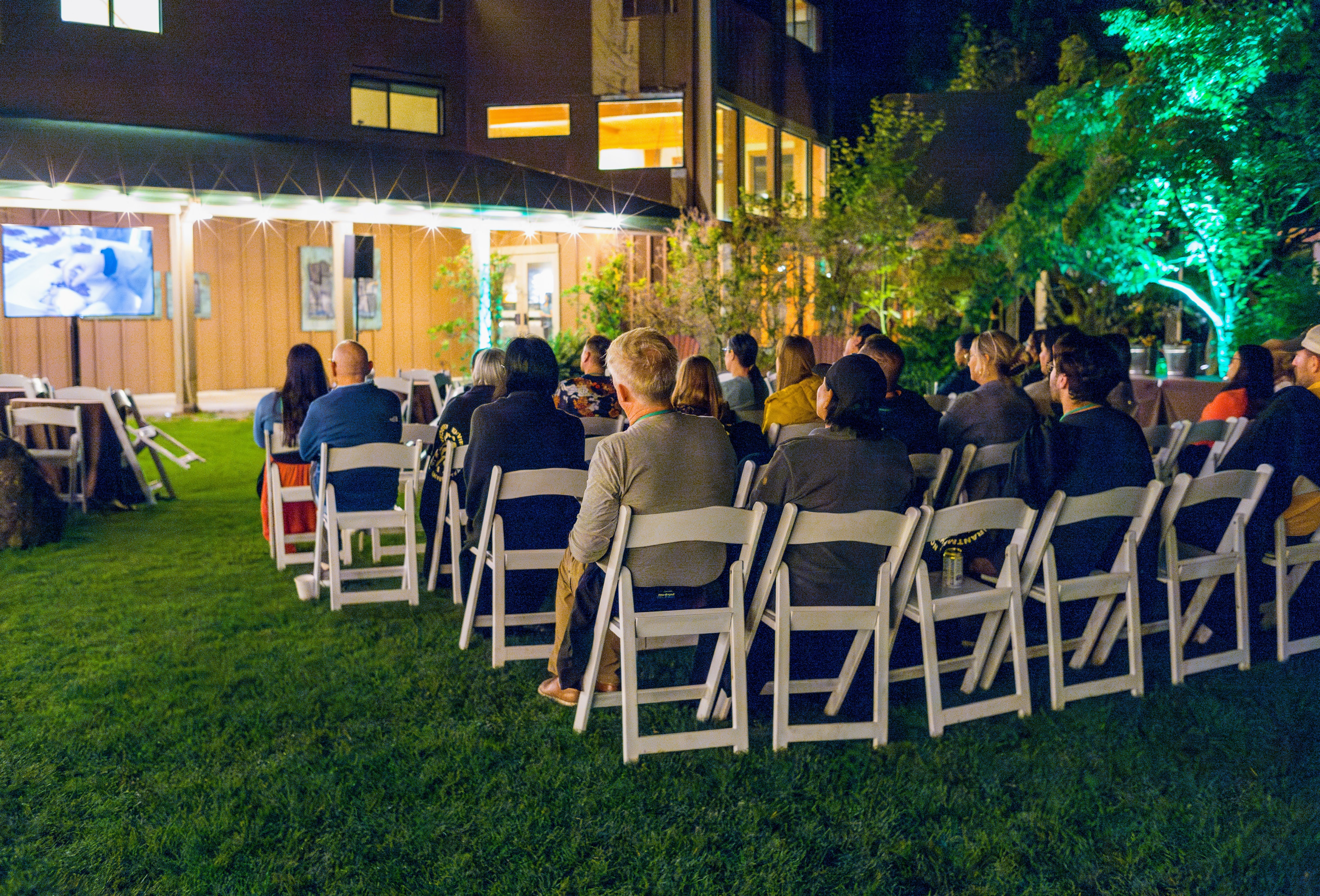
Photo by AT Media and Analysis.
Celebrating Winners of the EGA Awards
At the 2024 Fall Retreat, we celebrated the winners of the Donald K. Ross Founders Award and the EGA Risk Taker Awards. These awards honor environmental grantmakers for their efforts leading just and innovative philanthropic initiatives for people and planet.

[Top to Bottom]: Crystal Hayling, Executive Director of the Libra Foundation, Helen Chin, President of the Communities First Fund, Melanie Allen and Erin Rogers, Co-Directors of the Hive Fund for Climate and Gender Justice.
Congratulations to the Recipients!
Donald K. Ross Founders Award Winner: Crystal Hayling, Executive Director of the Libra Foundation
Risk Taker Award in the category of Visionary/Individual Winner: Helen Chin, President of the Communities First Fund
Risk Taker Award in the category of Visionary/Team Winner: Melanie Allen and Erin Rogers, Co-Directors of the Hive Fund for Climate and Gender Justice
- Learn more about the winners here.
- [Read]: EGA President, Tamara Toles O'Laughlin and Melanie Allen, Co-director of the Hive Fund on the role philanthropy can play in mobilizing federal funds.
The Intersection of Climate, Democracy, and Equity: strategies for a sustainable future
We closed our Fall Retreat with a thought-provoking discussion featuring distinguished leaders Antonia Juhasz, Investigative Journalist, Charles Lee of the EPA, Michael Harriot, Author and Public Historian, Varshini Prakash, former executive director of the Sunrise Movement, and Amy Laura Cahn, Lecturer in Law at UPenn Carey Law School. These powerful speakers shared insights on sustaining movements advancing an equitable and just democracy for healthy people and planet.
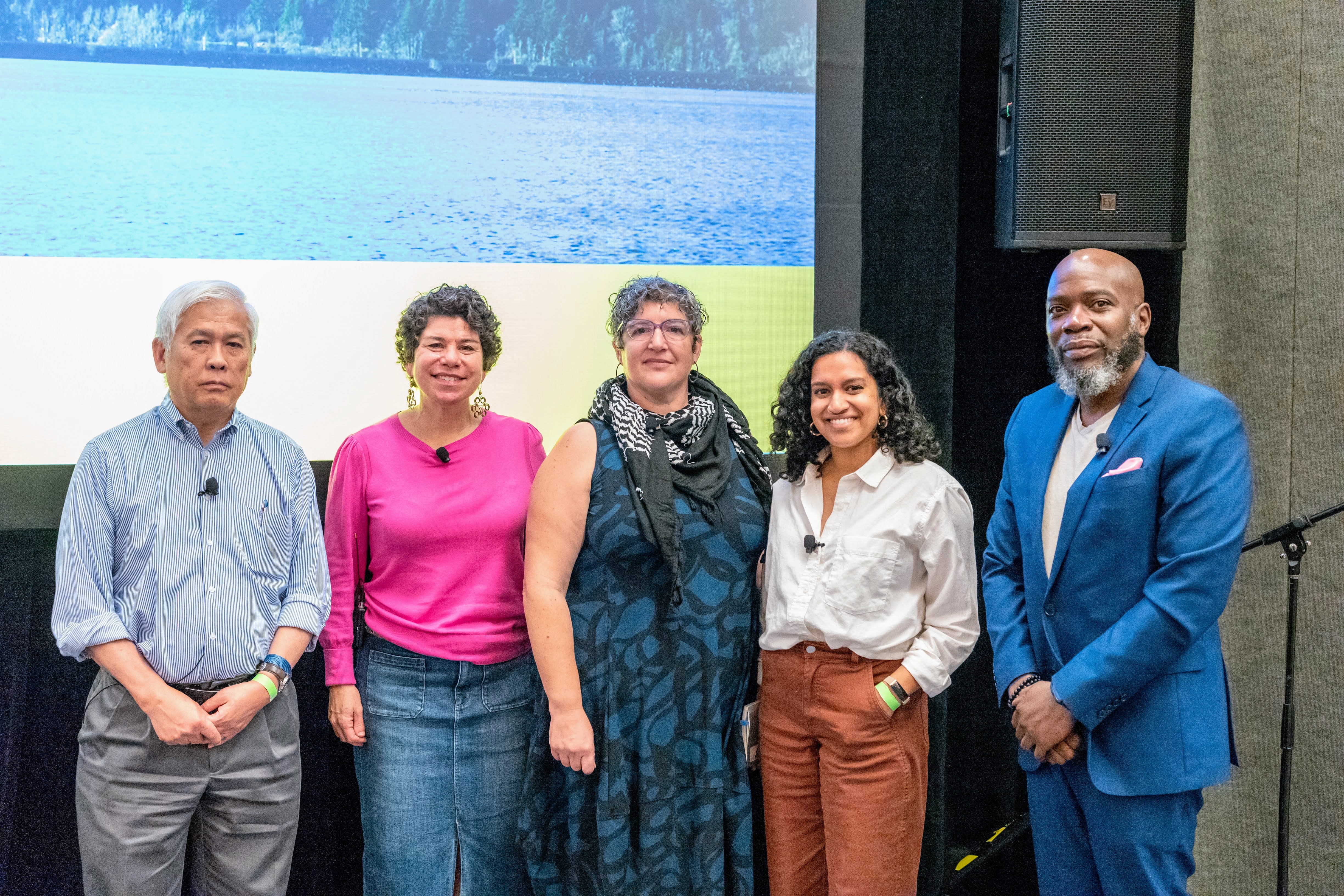
[Left to right]: Charles Lee of the EPA, Antonia Juhasz, Investigative Journalist, Amy Laura Cahn, Lecturer in Law at UPenn Carey Law School, Varshini Prakash, former executive director of the Sunrise Movement and Michael Harriot, Author and Public Historian. Photo by AT Media and Analysis.
“If we’re going to talk about systems change, we need to learn to do that” - Charles Lee of the EPA
Key Takeaways
- Sustaining support to frontline community organizers and coalitions is integral for enabling social movements that drive systems change.
- Get creative about how to address systemic racism. Despite the attacks on racial equity, we can continue listening to frontline communities and empowering grassroots leadership through strategies such as general support and/or legal backing.
- This moment in history is a significant time and opportunity to strengthen collaboration between government and philanthropy.
- Our work in environmental philanthropy is always connected to the work of broader social movements for justice and a healthy democracy. We need strategies and plans that sustain our movements beyond election cycles, no matter who is in office.
You must think globally, even if you act locally - Tynesha McHarris is the Co-Founder of Black Feminist Fund (BFF)
Tynesha McHarris, the Co-Founder of the Black Feminist Fund (BFF), shared powerful insights into funding Black feminist and gender expansive movements globally.
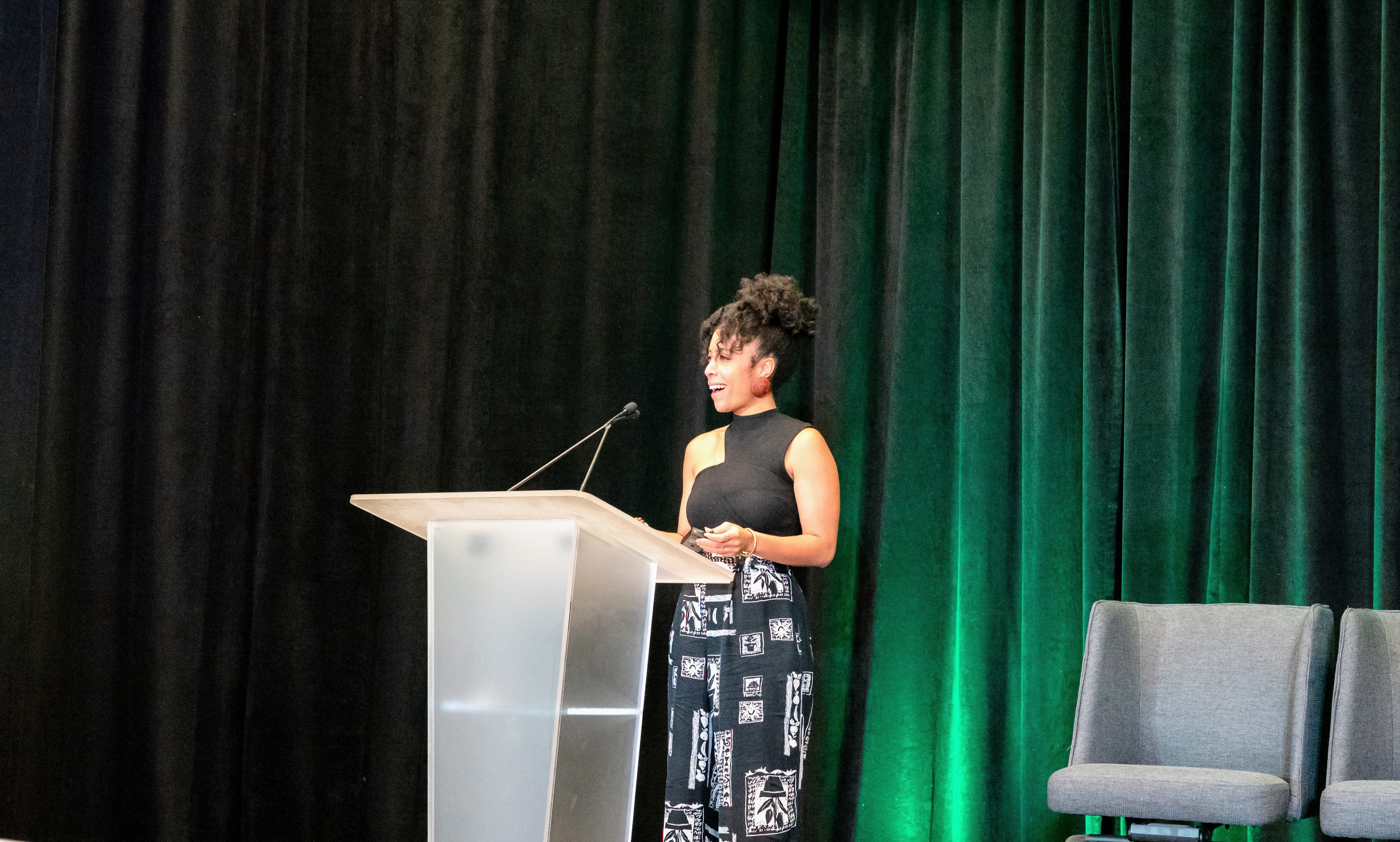
Tynesha McHarris is the Co-Founder of Black Feminist Fund (BFF). Photo by AT Media and Analysis.
Key Takeaways
- Black, gender-expansive people, and women in the Global South bear the brunt of the climate crisis. Yet, the Global North is home to 15% of the world’s population, and is responsible for 92% of global carbon emissions. The Global South accounts for less than half of global carbon emissions.
- Resourcing Black Feminist movement labor and leadership in the Global South is integral to climate justice. When it comes to the climate crisis, we need the labor and leadership of the Global South as they have the lived experiences to lead and inform necessary solutions. If Black, gender expansive people and women are not included in the solutions, then it is only half a solution.
- Flexible funding and a commitment to sustaining climate justice in the Global South will help us address the climate crisis. Over 70% of climate financing that goes to the Global South is in the form of loans, which further indebts struggling countries to solve an issue they did not create.
Further reading: Meet the Black Feminist Fund founders out to transform philanthropy
EGA in Community!
Gorge gatherings, grooves and good times!
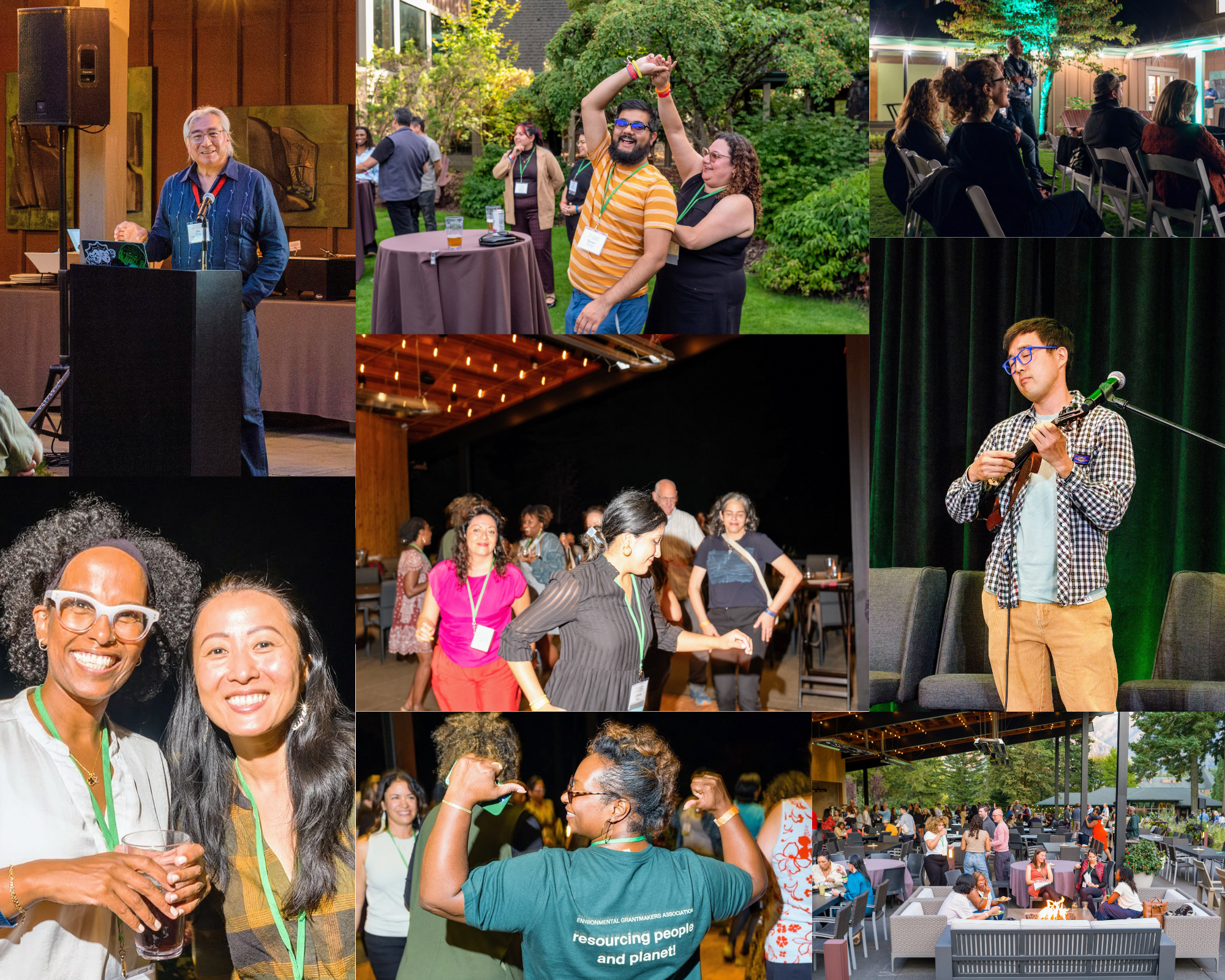
EGA thanks our Fall Retreat Program Committee Members for their dedication and intentional vision to this year's Fall Retreat:
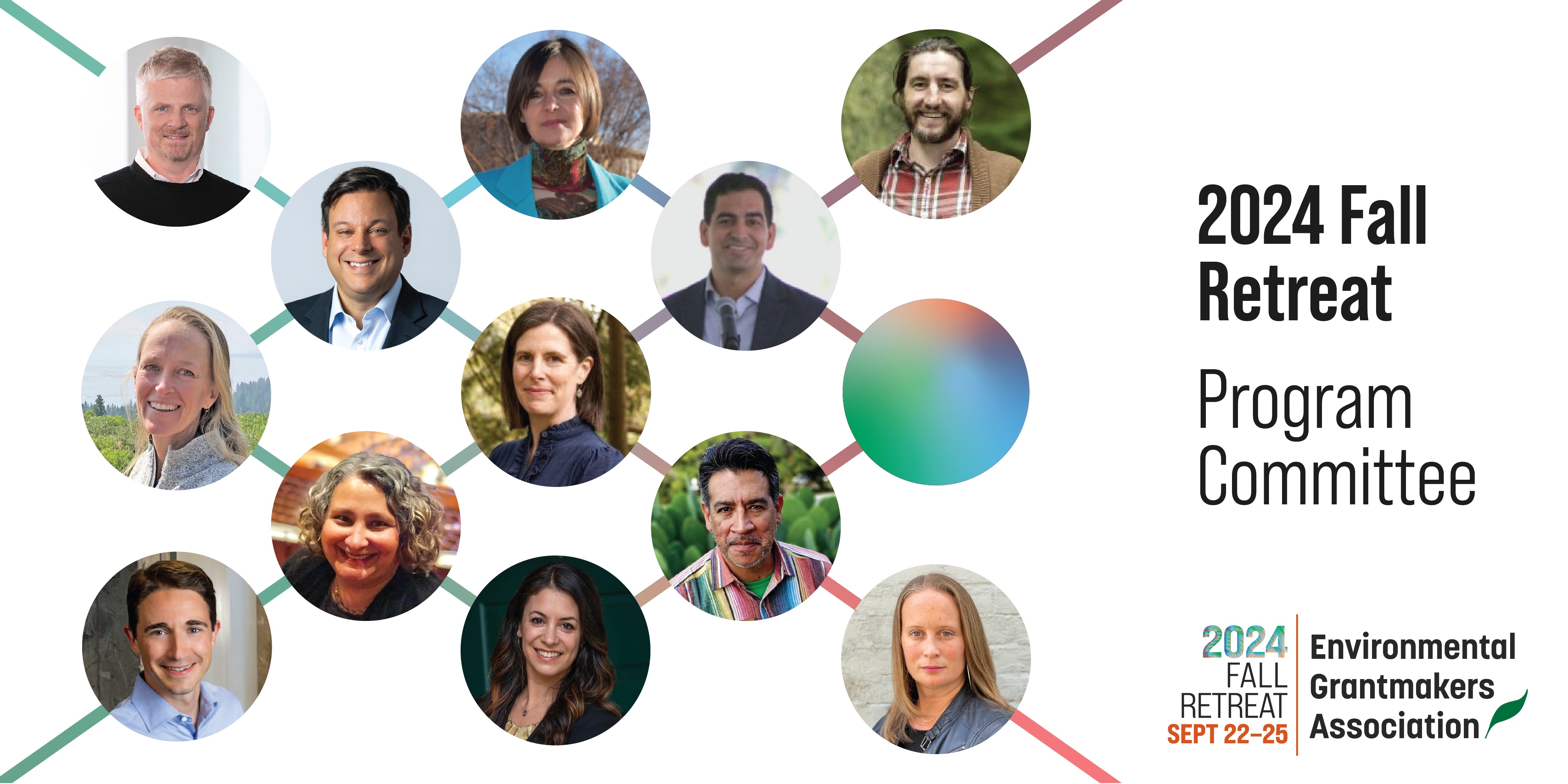
Thank you to the 2024 Fall Retreat Program Committee: Co-Chairs, Carlos Garcia and Sierra Martinez, EGA Board Liaison, Kristen Ragain, Jason Barbose, Genevieve Biggs, Dan Cannon, Christiana DeBenedict, Andrew Fahlund, Kézha Hatier-Reiss, Mark Magaña, Eleni Sotos and Emily Teitsworth.
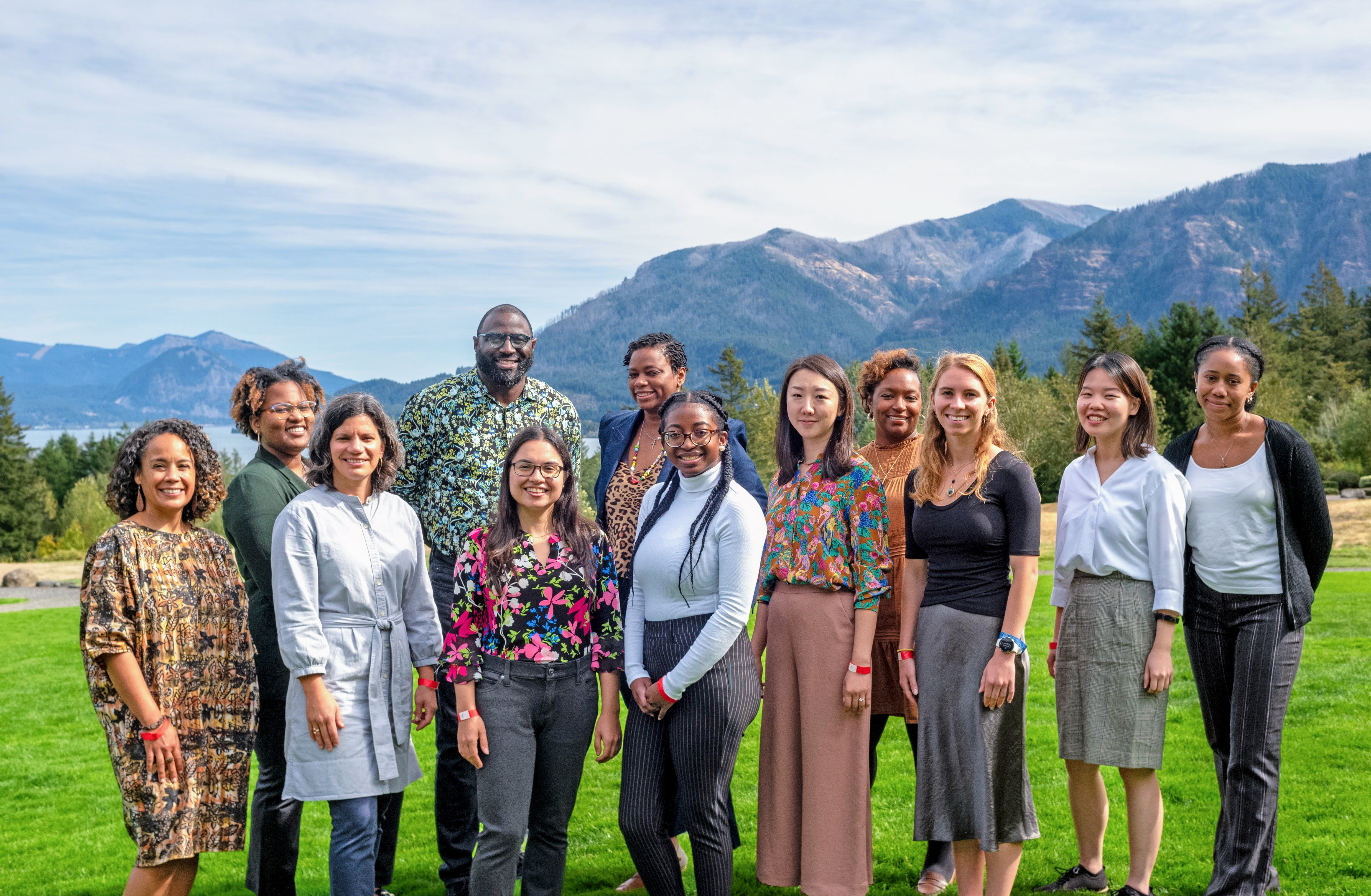
EGA staff thanks you for attending the 2024 Fall Retreat! We look forward to seeing you at our upcoming 2025 Federal Policy Briefing and 2025 Fall Retreat. Please save the dates below!
Save the Dates! 📅
2025 Federal Policy Briefing in Washington, DC. Feb. 23-25, 2025.
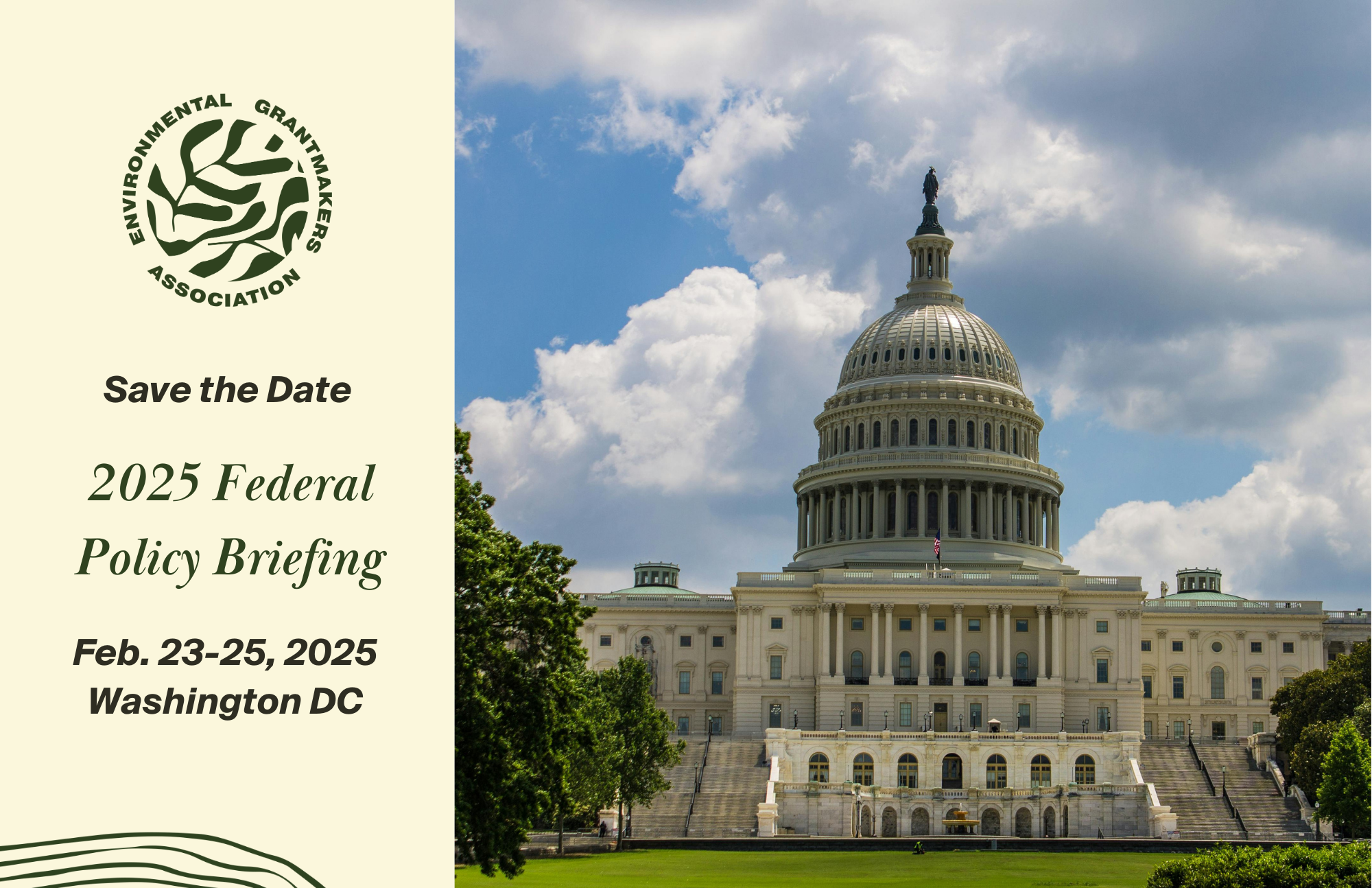
2025 Fall Retreat in Santa Ana Pueblo, New Mexico Oct. 19-22, 2025.
